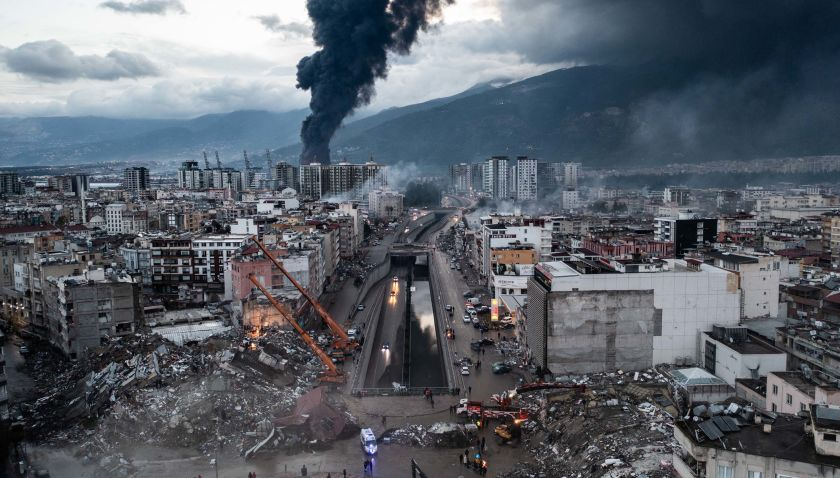With hundreds of people trapped, rescuers have lamented the lack of international humanitarian assistance desperately needed after the devastating earthquake that killed thousands in northwest Syria.
While rescue teams and volunteers from around the world have made their way to Turkey, medical volunteer Obaida Rannoush called out the inaction of the global community when it comes to his country. “I call on the international community, the Arab countries, and the United Nations to urgently help us,” he said, standing by the Bab al-Hawa border crossing. “More than 60 hours after the quake took place, there are still hundreds trapped under the debris. We cannot rescue them because of our meagre resources. We need heavy machinery, humanitarian and medical aid,” he said.
Until now, he went on to say, not a single humanitarian convoy has crossed the border.
“We have not received any kind of assistance,” Rannoush said. “We are standing here by the border crossing to ask for humanitarian aid so we can save some of the people under the rubble.”
On Wednesday, the World Health Organization (WHO) said it is deploying teams and three flights with medical supplies to Turkey and Syria. “The health needs are tremendous,” said Dr Iman Shankiti, the WHO representative for Syria.
In northwest Syria, the sluggish international response is a matter of life or death for hundreds still trapped under the concrete of collapsed buildings. The lack of response has prompted dozens of Syrian journalists to stage a sit-in at the Bab al-Hawa crossing.
Mazen Alloush, head of media relations for the Bab al-Hawa border, said millions of Syrians have been affected by the earthquake and its aftershocks. “The crossing has been closed since the earthquake took place,” he said.
Madevi Sun-Suon, spokesperson for the United Nations Office for the Coordination of Humanitarian Affairs (OCHA), said on Tuesday that aid flows from Turkey to northwest Syria have temporarily stopped because of the fallout from the earthquake. “Some roads are broken, some are inaccessible. There are logistical issues that need to be worked through,” she said.
“Every half hour or so we see cars carrying the bodies of Syrian people who died in the earthquake in Turkey crossing the border into Syria,” he said. “So how can the roads be closed for aid but open for funeral convoys?
“We know that the UN aid is stored in the Turkish city of Reyhanli, which is just one kilometre away from the border crossing,” he added. So far, the bodies of 300 Syrians who died from the earthquake in Turkey have crossed into Syria for funerals. But Alloush said since the first moments after the quake, Turkey stopped receiving medical patients from Syria, and has also barred volunteer teams from crossing the border.
“No aid has entered [north Syria] through any of the corridors,” Abdul Razzak Kentar, programmes manager at the Syria Civil Defense, told Al Jazeera. “Only an Egyptian technical team of 20 people, including doctors without equipment, entered through the Bab al-Hawa crossing. “All the crossings according to official statements have been opened – Bab al-Hawa, Jarabulus, and Bab al-Salamah. But as for the civil defence, we have not received any international or non-international assistance so far.
“We are still working with our reserves and aid from local organisations operating in the liberated north,” Kentar said.


